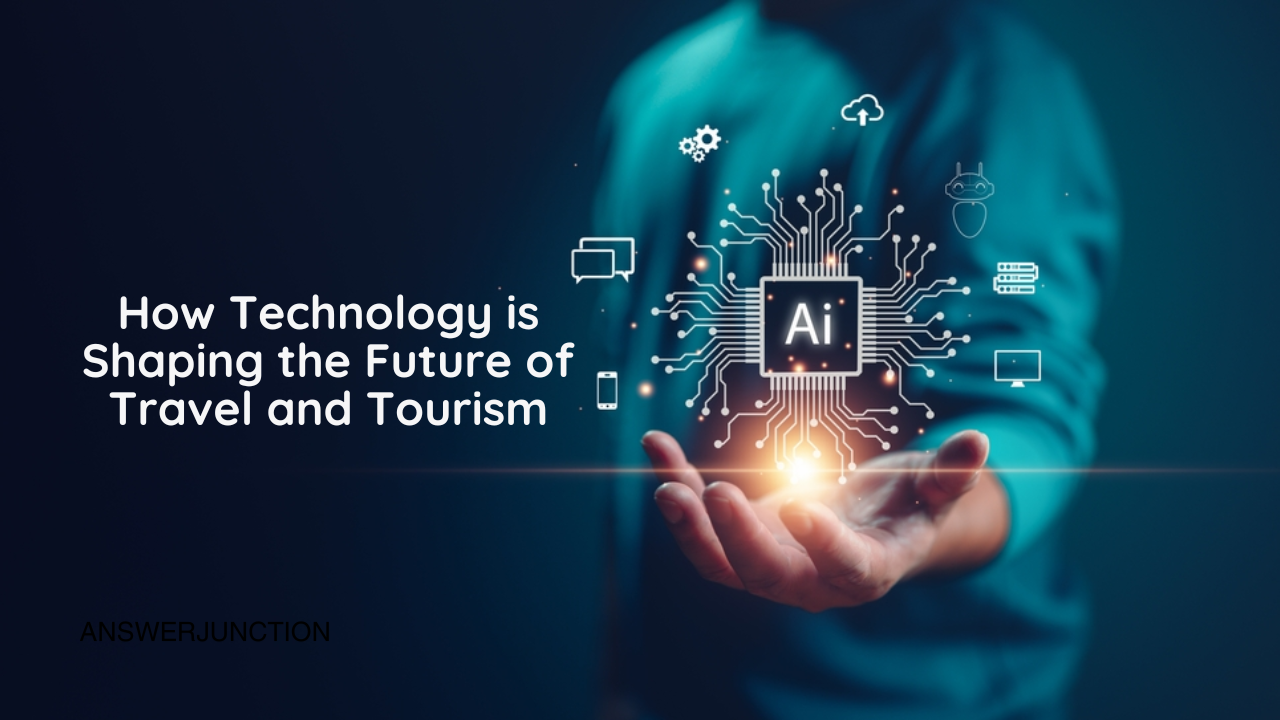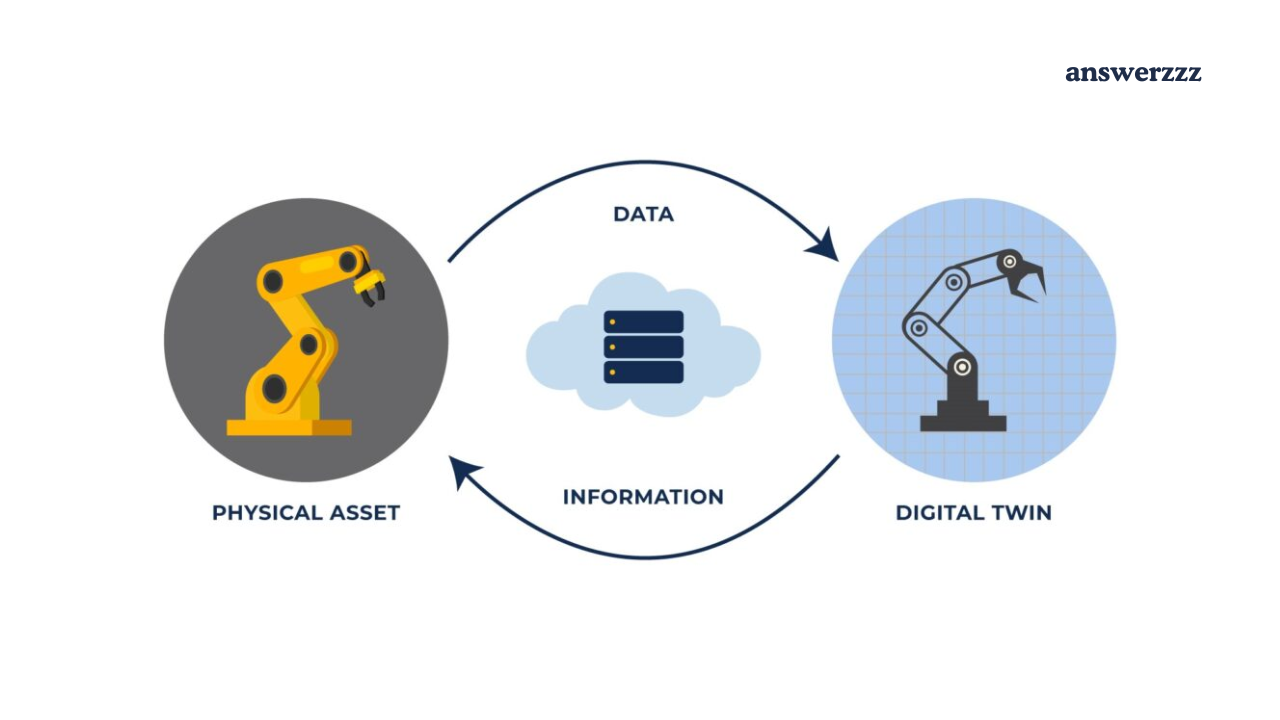The travel and tourism industry has undergone profound transformations in recent years, largely driven by advancements in technology. From planning and booking to the travel experience itself, technology is reshaping every aspect of how we explore the world. As we look to the future, the integration of emerging technologies promises to enhance convenience, personalization, and sustainability in travel. In this article, we will explore the key technological trends shaping the future of travel and tourism, including artificial intelligence, virtual reality, mobile technology, and the Internet of Things (IoT).
1. The Rise of Artificial Intelligence (AI)

Artificial intelligence is revolutionizing the travel industry by enhancing customer service, personalizing experiences, and streamlining operations. AI-driven chatbots and virtual assistants are increasingly used by airlines, hotels, and travel agencies to assist customers with booking, inquiries, and support.
1.1 Personalized Recommendations
AI analyzes vast amounts of data to understand consumer preferences and behaviours. This capability enables travel companies to offer personalized recommendations, whether for destinations, activities, or accommodations. For instance, a travel app can suggest tailored itineraries based on a user’s previous travel history and interests, enhancing the overall travel experience.
1.2 Smart Customer Service
AI chatbots are available 24/7, providing instant responses to customer inquiries. This technology reduces wait times and improves customer satisfaction. Moreover, these chatbots can handle multiple queries simultaneously, allowing companies to allocate human resources more effectively.
1.3 Predictive Analytics
Predictive analytics, powered by AI, helps travel companies forecast demand, optimize pricing, and improve inventory management. Airlines can adjust ticket prices dynamically based on real-time demand analysis, maximizing revenue while ensuring competitive pricing for customers.
2. Virtual and Augmented Reality (VR/AR)
Virtual and augmented reality technologies are changing the way travellers plan their trips and experience destinations. These immersive technologies allow potential travellers to explore destinations and accommodations before making a booking, significantly enhancing their decision-making process.
2.1 Virtual Tours
Virtual reality enables users to take virtual tours of hotels, resorts, and attractions from the comfort of their homes. This immersive experience helps travellers visualize their destination, making them more likely to book. For example, real estate and hospitality sectors use VR to showcase properties and enhance the guest experience.
2.2 Augmented Reality Apps
Augmented reality applications enhance the travel experience by providing real-time information about surroundings. For instance, travellers can use AR apps to scan landmarks and receive historical facts, navigation assistance, or cultural insights. This interactive approach enriches the travel experience and fosters deeper connections with destinations.
2.3 Enhancing Cultural Experiences
VR technology is also being used to provide cultural experiences that might otherwise be inaccessible. Virtual museums, historical reenactments, and immersive storytelling can transport users to different times and places, enriching their understanding of global cultures and histories.
3. Mobile Technology and Apps
The rise of smartphones and mobile apps has transformed how travellers plan and experience their journeys. Mobile technology provides convenience and flexibility, empowering travellers with tools to navigate their adventures seamlessly.
3.1 Booking and Itinerary Management
Mobile apps have simplified the booking process, allowing travellers to find flights, accommodations, and activities at their fingertips. Users can compare prices, read reviews, and secure reservations, all from their smartphones. Furthermore, itinerary management apps consolidate travel plans, including flight information, hotel reservations, and activity bookings, into a single interface.
3.2 On-the-Go Information
Travelers can access real-time information about their journeys, such as flight delays, gate changes, and local weather conditions. Mobile apps like Google Maps provide navigation assistance and recommend nearby attractions, restaurants, and services. This information empowers travellers to make informed decisions while on the go.
3.3 Mobile Payments
Mobile payment solutions, such as Apple Pay and Google Wallet, have simplified transactions for travellers. With a secure and convenient way to make payments, travellers can avoid carrying large amounts of cash and enjoy a frictionless purchasing experience. This ease of payment extends to tipping, dining, and purchasing souvenirs, enhancing the overall travel experience.
4. The Internet of Things (IoT)

The Internet of Things is transforming travel by connecting devices and systems to create a seamless and efficient experience. Smart technologies are becoming increasingly integrated into hotels, transportation, and attractions, enhancing comfort and convenience for travellers.
4.1 Smart Accommodations
Hotels are adopting IoT technologies to create smart rooms that allow guests to control lighting, temperature, and entertainment systems from their smartphones. This level of personalization enhances comfort and convenience, enabling guests to create their ideal environment.
4.2 Connected Transportation
IoT technologies are also being implemented in transportation. Smart airports use IoT sensors to monitor passenger flow, optimizing security checks and boarding processes. Moreover, connected vehicles and ridesharing apps improve transportation efficiency, providing real-time updates and seamless navigation for travellers.
4.3 Enhanced Safety and Security
IoT devices enhance safety and security for travellers. Smart locks and surveillance systems in accommodations ensure guests feel secure. Moreover, tracking technologies for luggage and personal belongings provide peace of mind, reducing the stress of travel.
5. Sustainable Travel Technologies
As awareness of environmental issues grows, travellers increasingly seek sustainable options. Technology is playing a vital role in promoting eco-friendly practices within the travel and tourism industry.
5.1 Carbon Offset Programs
Many travel companies now offer carbon offset programs, allowing travellers to compensate for the emissions generated by their trips. These programs utilize technology to calculate the carbon footprint of a journey and invest in renewable energy projects or reforestation efforts.
5.2 Sustainable Travel Apps
Various mobile applications help travellers find eco-friendly accommodations, transportation options, and activities. These apps promote sustainable tourism by connecting travellers with local businesses that prioritize environmentally friendly practices.
5.3 Smart Energy Management
Hotels and resorts are implementing smart energy management systems to reduce their environmental impact. IoT technologies monitor and control energy consumption, optimizing lighting, heating, and cooling based on occupancy. These initiatives not only benefit the environment but also reduce operational costs for businesses.
6. The Future of Travel Experience
The future of travel and tourism will be characterized by increasingly personalized and immersive experiences, driven by advancements in technology. As the industry continues to evolve, several trends are expected to shape the travel landscape.
6.1 Hyper-Personalization
The future of travel will see a shift toward hyper-personalization, where travellers receive tailored experiences based on their preferences, behaviours, and feedback. AI and data analytics will play a critical role in understanding individual traveller needs, allowing companies to curate unique experiences that resonate with each customer.
6.2 Seamless Travel Journeys
Technology will continue to streamline travel processes, resulting in seamless journeys from booking to return. The integration of biometric technologies, such as facial recognition and fingerprint scanning, will expedite check-in processes at airports and hotels, enhancing efficiency and convenience.
6.3 Socially Responsible Travel
As travellers become more conscious of their impact on local communities, socially responsible travel will gain prominence. Technology will facilitate connections between travellers and local communities, fostering meaningful interactions and supporting sustainable development initiatives.
7. Challenges and Considerations
While technology presents numerous benefits to the travel industry, it also poses challenges that must be addressed.
7.1 Data Privacy and Security
With the increasing reliance on technology and data collection, ensuring the privacy and security of travellers’ information is paramount. Companies must implement robust cybersecurity measures to protect sensitive data and build trust with their customers.
7.2 Digital Divide
As technology advances, the digital divide between those with access to technology and those without may widen. Ensuring equitable access to travel experiences is crucial, as not all travellers may have the same access to technology or resources.
7.3 Balancing Automation and Human Touch
While automation enhances efficiency, maintaining the human touch in customer service is essential. Travelers often seek personal connections and authentic experiences, which can be diminished by over-reliance on technology. Striking the right balance between automation and human interaction will be key to delivering exceptional travel experiences.

The future of travel and tourism is being reshaped by technology in unprecedented ways. From artificial intelligence and virtual reality to mobile technology and the Internet of Things, these advancements are enhancing customer experiences, promoting sustainability, and streamlining operations. As the industry continues to evolve, embracing these technologies will be essential for companies to remain competitive and meet the ever-changing demands of travellers. While challenges remain, the opportunities presented by technology will pave the way for a more connected, personalized, and sustainable travel experience, enabling people to explore and connect with the world in ways previously unimaginable. As we move forward, the travel industry must harness these technological advancements to create a future that not only meets the needs of travellers but also respects and preserves the planet we explore.



